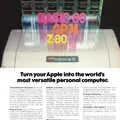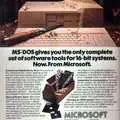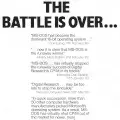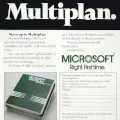
Microsoft Advert - December 1982
From Personal Computer World
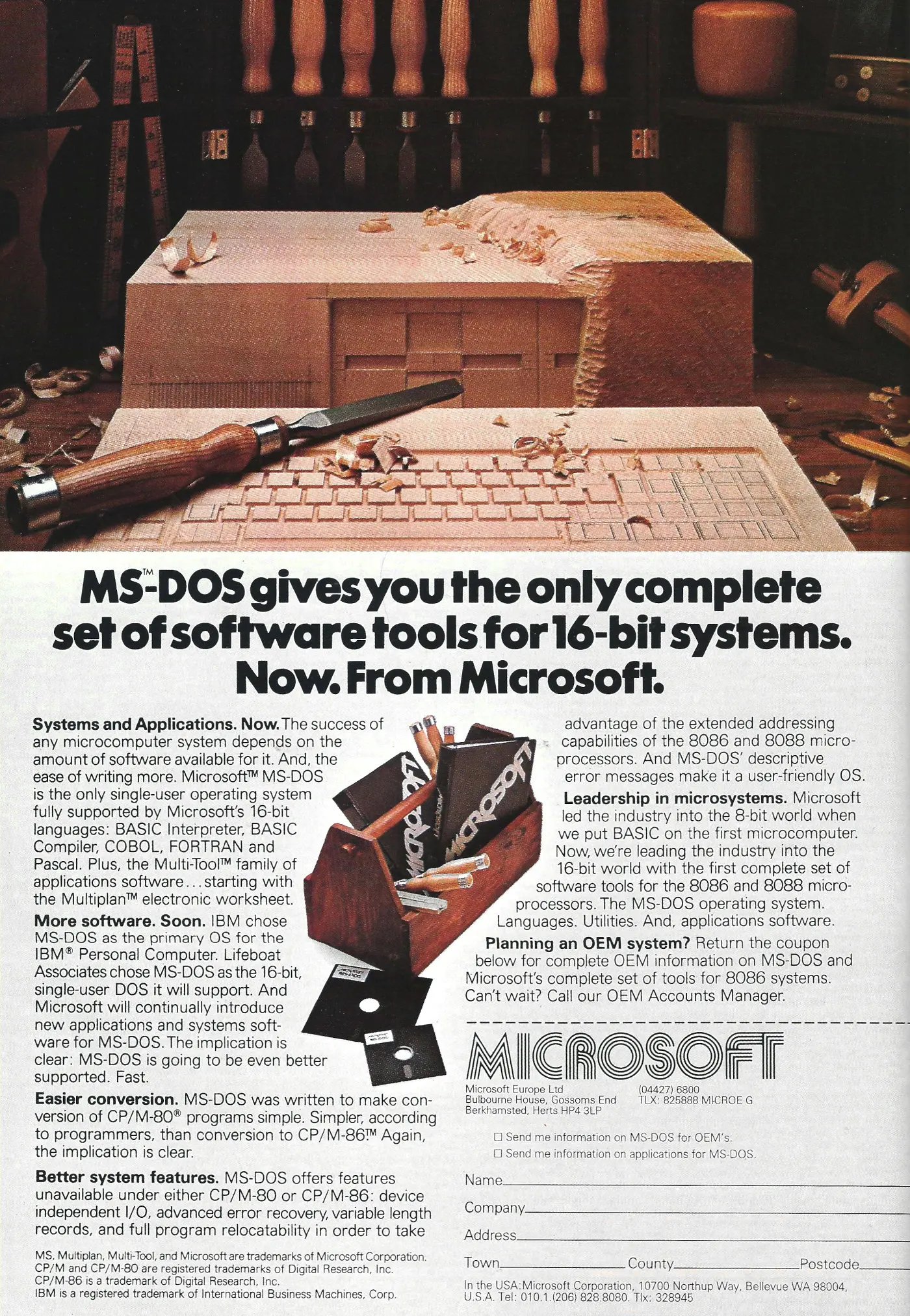
Microsoft: MS-DOS gives you the only complete set of tools for 16-bit systems
If there was once company that, for good or bad, has influenced the early home and business computer industry more than any other, it has to be Microsoft.
Formed in 1975 in Alberquerque, New Mexico, by Bill Gates and Paul Allen, Micro-Soft, as it was then known, got its first break when it provided a version of Dartmouth College's BASIC for the popular early computer the Altair 8800, which it followed up by providing the BASIC for most of the home computers and many business microcomputers of the day.
Commodore also used Microsoft's 6502 BASIC on the first complete Personal Computer in the world - the PET - which was launched in 1977. Famously, Commodore rejected Microsoft's usual $3 per seat licence and instead haggled for a one-off payment of $25,000.
Bill Gates agreed, little knowing that Commodore would use, with its own enhancements, the same source version of BASIC for its entire range of 8-bit computers, from the original PET, through the VIC-20, C64, Plus/4, C16, all the later Business PETs and right up to the company's last 8-bit micro the Commodore 128 - a range of machines which sold somewhere in the region of 23 million units.
This saved Commodore nearly $70 million dollars, which made the whole thing quite possibly Jack Tramiel's best business deal.
When the IBM PC was being developed, IBM approached Microsoft looking for a version of BASIC to use on its new machine.
Bill Gates saw the opportunity and offered a complete operating system to go with it, even though Microsoft didn't actually have one to offer.
MS had to hastily buy a clone of what was arguably the most popular "serious" operating system of the era - a version of CP/M called QDOS, written by a garage-based company called Seattle Computer Products - to fill the gap. It rapidly developed this in to MS-DOS and the rest is history.
The Register has a great potted history of MS-DOS' paternity here.
The advert itself is slightly unusual in that despite being placed in a consumer magazine, it was not aimed at consumers at all but at computer manufacturers and OEMs (Original Equipment Manufacturers).
Only a few months before, the Columbia company became the first to clone the IBM PC's BIOS - the basic input/output system that allows the machine to boot. Because this was the only proprietary part of an IBM PC - the rest was made up of off-the-shelf parts - any other manufacturer could now build machines compatible with the IBM spec.
Columbia was followed by a raft of others, including Compaq in November of this year[1].
This advert therefore looks like a response to this burgeoning market and so is clearly intended to direct attention to Microsoft as a provider of the operating system of choice, over and above other OSes, like CP/M.
By 1983, it was more-or-less game over for Microsoft's competitors, primarily Digital Research, the company founded by Gary Kildall and whose CP/M - the most popular operating system for serious machines throughout most of the late 1970s and early 1980s - had been plagiarised to create MS-DOS in the first place.
Victor Technology, founded by 6502 legend Chuck Peddle, was one such company to announce the discontinuing of support for CP/M-86 on its Victor 9000/Sirius 1, at a time when estimates put MS-DOS on 96% of all shipped 16-bit machines.
The failure of CP/M was partly due to some poor tactical decisions by DR, which was relying on rival Microsoft to port its languages to CP/M-86.
Microsoft proved hesitant to implement its M-BASIC and BASIC-86 compiler, which made CP/M less attractive to potential users and left DR with only the legacy 8-bit and 68000 markets[2].
Date created: 11 February 2013
Last updated: 15 January 2026
Hint: use left and right cursor keys to navigate between adverts.
Sources
Text and otherwise-uncredited photos © nosher.net 2026. Dollar/GBP conversions, where used, assume $1.50 to £1. "Now" prices are calculated dynamically using average RPI per year.
